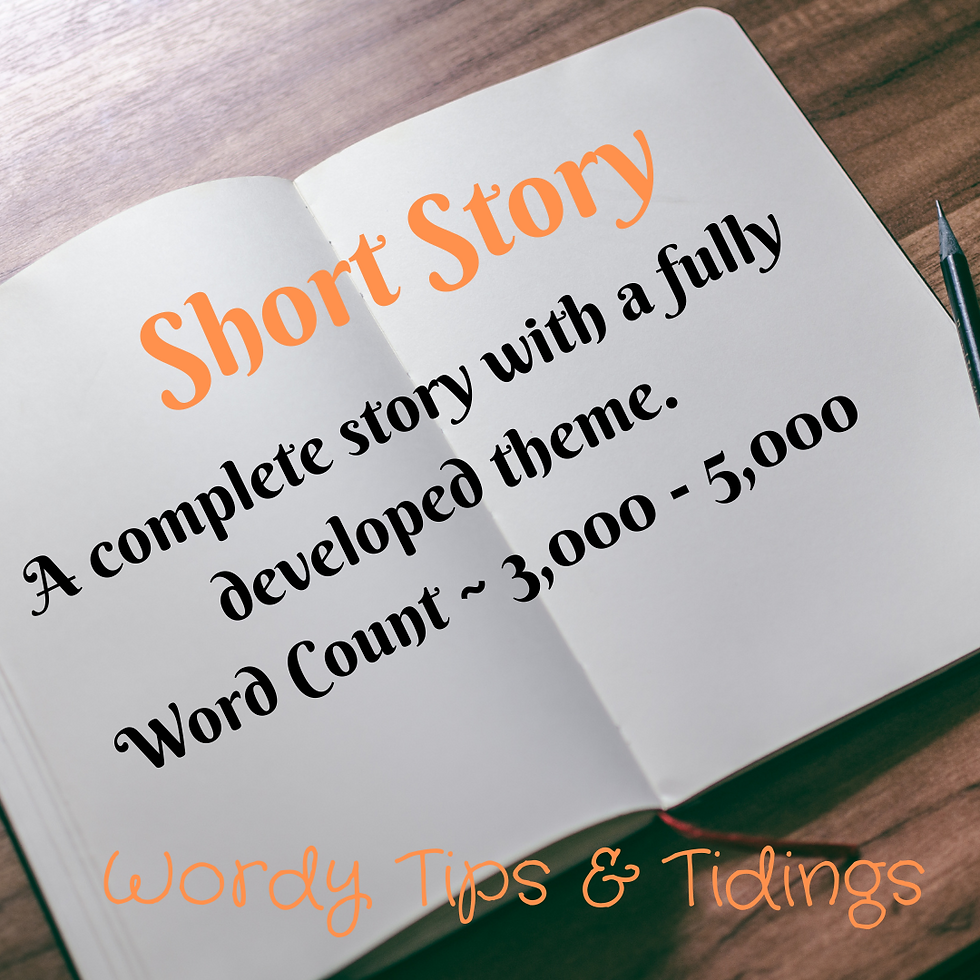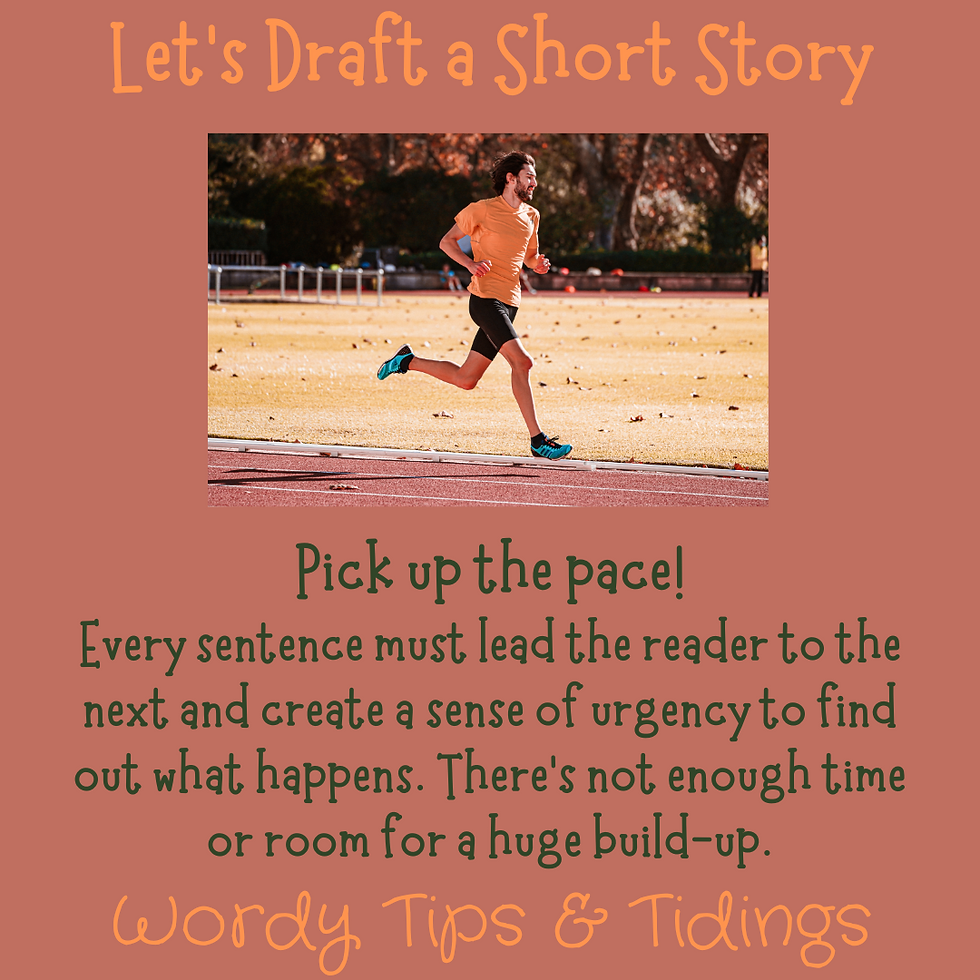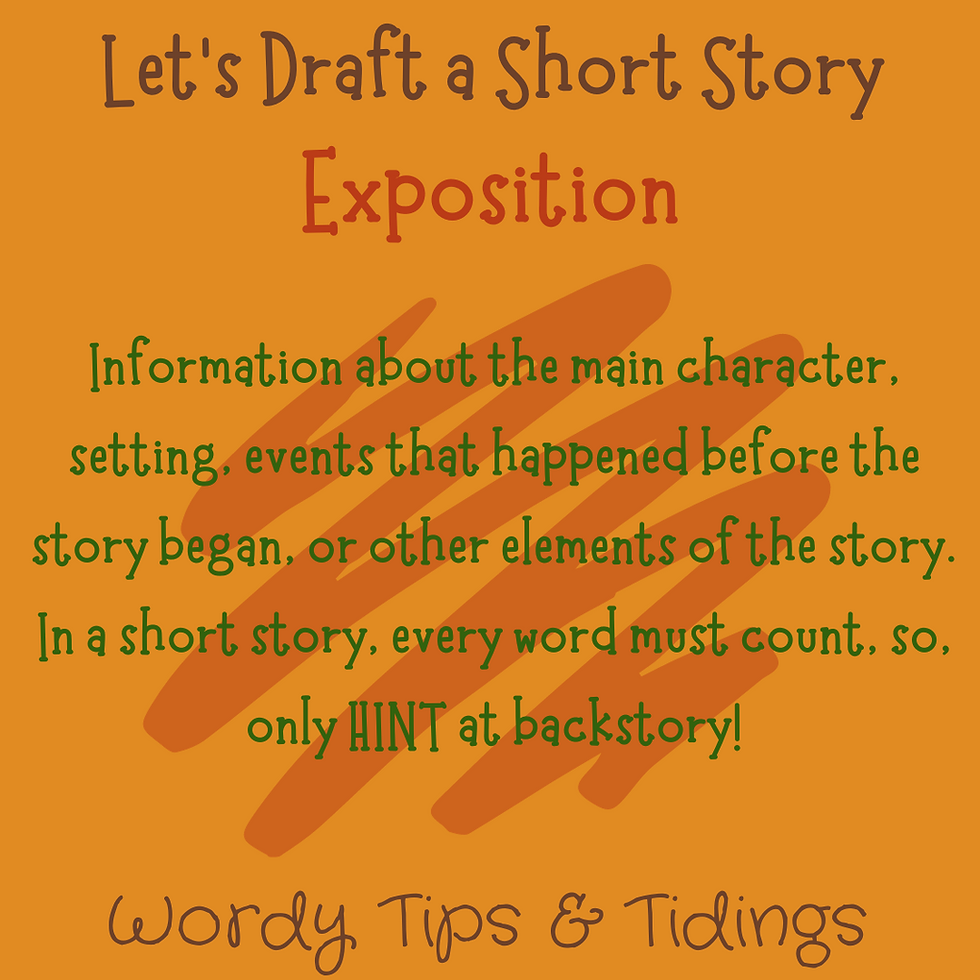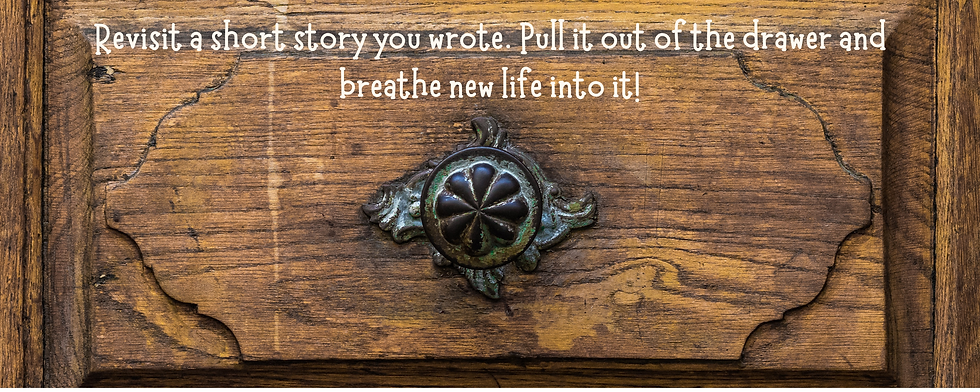Let's Draft a Short Story
- wordytips
- Oct 9, 2023
- 4 min read
Updated: Oct 27, 2023

A short story, though not exactly the same as s full-length book, is a pared-down version of a novel. It is a complete story with a fully developed theme. A short story is still required to have the infamous must-haves: a beginning, middle, and end, a main character, a specified point of view, a central plot without subplots that distract from the story, an established setting, tension and conflict, and they must contain sensory details.

Phew, that’s a lot to jam into a little tale. Short stories may appear as if they are easy to craft. In reality, the concept may be simple to grasp, but the art of authoring a short story takes time to perfect. As with any book, the author of a short story must hook the reader. That opening line has to kill it and the sentences and paragraphs that follow have to keep on killing it. A captivated reader will continue to read.

The obvious difference between a short story and novel is the word count. A novel is typically anywhere from 70,000-100,000+ words, depending on genre. Anything less is usually categorized as a Novella. Anything upwards of 150,000 words better be fanfriggentastic or it will most likely never be traditionally published. Are there exceptions? Sure! Think: A Song of Ice and Fire series by George R.R. Martin with each book tallying close to or over 300,000 words, War and Peace, Leo Tolstoy’s historical novel weighing in at an astounding 587,287 words, or Herman Melville’s Moby Dick with a staggering 209,117 words. These are long, but great! The word count for a short story is far less and varies from 1,000-7,000 words with the average landing someplace between 3,000-5,000 words.

All books begin with the kernel of an idea. A short story is no different. Booyah, you’ve got a kick-ass concept. You’re patting yourself on the back, ready to work your magic. Uh-oh, you lose steam. Your idea is eerily similar to another story already on the shelf or in a book of short stories. Please don’t stress. Your idea is just the beginning, it’s not what drives the story. Your writing does, your style and voice. Think about all the fairytale retellings out there or the tropes that are the same, but the stories are very different. Let your idea unfold. I guarantee sparks will fly and your story will take on a life of its own once you fill the page with words and vision. Just like with a novel, your story will change and grow and probably end up being very different from what you started with.

A short story contains a limited number of characters. Because the short story is, well, short, there isn’t room for a big pool of fancy characters. Stick with one or two and make sure at least one of them is someone your intended readers can root for.
Choose your protagonist and perhaps an antagonist, with care. Know their backstories but focus on the protagonist. Ask yourself questions about them. What is driving them? What do they want? What’s holding them back? What conflict will befall them? What tension will they be faced with? What are their flaws? How would they react in certain situations? How do they speak? (Give them a unique voice) Will they achieve what they desire? How will they grow?
Supporting characters do not need special treatment or distinction. Their role can be stale or uninteresting, their persona flat.

As for point of view, the protagonist is the usual storyteller who maintains the show and tell throughout the narrative, with showing remaining the focus. Romance short stories may have two points of view, one for each romantic partner, but never within the same scene. This helps to avoid the dreaded head-hopping.

A quickened pace is another distinction that sets the short story apart. When writing a book, an author can take more time building toward the climax, but a short story does not afford the same luxury. Every sentence must lead the reader to the next and create a sense of urgency to find out what happens. There’s not enough time or room for a huge build-up, but at the same time, tension, and conflict must be at the forefront.

In a short story there is not enough space for intricate world building, especially if the short story is a fantasy. Fantasy novels have higher word counts so the author has room to build their world with all the nuances and unique items pertaining to that world. There is not enough leg room within a short story to add too many contraptions, features, or world details. A few will have to do.

The hint of backstory with no further elaboration, is common when drafting a short story. There is leeway with longer narratives to sprinkle in exposition throughout the story, however considering that every word must count in the short story, there’s no room at the inn for detailed background information.

Start in action and provide conflict within the scenes you draft. Build the tension and keep it going. That’s why readers turn pages. Stitch together every scene, every paragraph, every bit of dialogue around the protagonists desires. Show the reader how your protagonist feels, how they deal with the conflict, how they move toward their ultimate goal.

Let your writing style shine throughout the story. Pay attention to word choice. Choose words that speak in your unique writing voice. Structure sentences so they are concise and pack a punch. Words matter. Draw readers in with the words you choose. As I always preach, choose specific words and write in action. Avoid clichés, adverbs, busy words, and weak words.

Crafting a short story is perhaps a gateway to drafting a novel. Track down those short stories that are stuffed in a drawer someplace, dust them off and see if any are worthy of expanding into a full-length novel. Maybe you have one sitting dormant in a document on your computer. Find it, read it again, rework it if you can. Turn it into a novel! You got this! Yay!






Comments